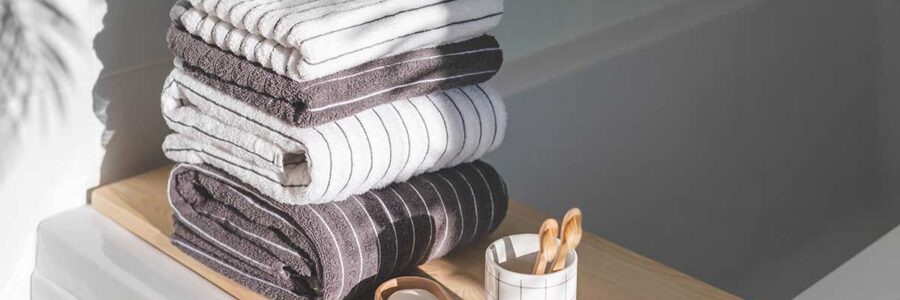In our quest for a healthier lifestyle, we often overlook the small but significant items in our daily routines, like our bath towels. If yours are made from a cotton-polyester blend, you might expose yourself to harmful microplastics each time you dry off. This can lead to inflammation and other serious health issues, including heart disease.
Understanding the Problem with Cotton-Polyester Towels
Cotton-polyester blend towels are common due to their durability and cost-effectiveness. However, these towels contain microplastics that can transfer to your skin, especially when your body is warm and pores are open after a hot shower.[1] Over time, these microplastics can accumulate in your body, leading to inflammation and potentially contributing to cardiovascular problems and other health issues.
The Health Risks of Microplastics
Microplastics are tiny particles from various sources, including synthetic fabrics. When these particles enter your body, they can cause a range of health problems:
- Chronic Inflammation: The immune system’s response to these foreign particles can cause chronic inflammation, a precursor to many diseases.
- Hormonal Disruption: Microplastics can act as endocrine disruptors, interfering with the body’s hormonal balance.[2]
- Increased Risk of Heart Disease: Ongoing exposure to microplastics has been linked to a higher risk of developing cardiovascular issues.[2]
Safer Alternatives: Choosing the Right Towels
To protect your health, choosing towels that do not contain synthetic fibers is essential. Consider the following options:
- 100% Cotton Towels: Pure cotton towels do not release microplastics and are safe for your skin. They provide excellent absorbency and softness, making them a great choice for everyday use.
- Oeko-Tex Certified Towels: Towels with this certification have been tested for harmful chemicals and are mostly free of hazardous substances. This ensures that the towels are safe for direct skin contact.[3]
- 100% Organic Cotton Towels: Organic cotton is grown without synthetic pesticides and fertilizers, making these towels a healthier and more eco-friendly option. They are available at various prices, making them accessible to most people.
Replacing Plastic Loofahs with Natural Alternatives
Plastic loofahs are another source of microplastic exposure and can harbor bacteria. Consider switching to these natural alternatives:
- Natural Sea Sponges: Biodegradable and free from synthetic materials, these sponges are gentle on the skin and environmentally friendly.[4]
- Exfoliating Washcloths: Made from natural fibers, these washcloths are effective for exfoliation and safer for your skin.
Conclusion
Reassessing the materials we use daily, such as bath towels, can significantly impact our overall health. By opting for 100% cotton or organic cotton towels and avoiding plastic loofahs, you can reduce your exposure to microplastics and other toxins. These simple changes can lead to a healthier, more natural lifestyle, promoting better wellness for you and your family. Make the switch today and enjoy the benefits of a toxin-free bathroom routine.
References:
- Pušić, Tanja, et al. “Particle Shedding from Cotton and Cotton-Polyester Fabrics in the Dry State and in Washes.” Polymers, vol. 15, no. 15, July 2023, p. 3201. PubMed Central.
- Campanale, Claudia, et al. “A Detailed Review Study on Potential Effects of Microplastics and Additives of Concern on Human Health.” International Journal of Environmental Research and Public Health, vol. 17, no. 4, Feb. 2020, p. 1212. PubMed Central.
- What OEKO-TEX® Labels Mean and Why They Matter. 16 Apr. 2024, https://www.oeko-tex.com/en/news/blog/what-oeko-tex-labels-mean-and-why-they-matter.
- Jesionowski, Teofil, et al. “Marine Spongin: Naturally Prefabricated 3D Scaffold-Based Biomaterial.” Marine Drugs, vol. 16, no. 3, Mar. 2018, p. 88. PubMed Central.


